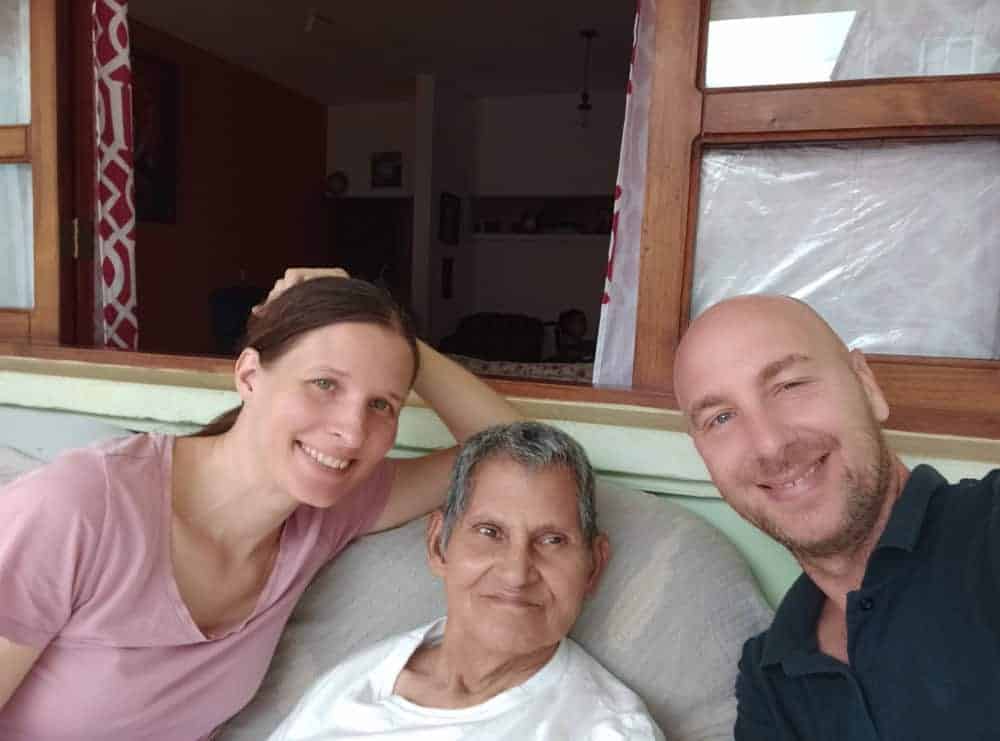Paraguay is a young country. As much as 35 percent of the population consists of young people and children. Sadly, many of them are orphans, don’t have parents or receive proper education because parents themselves are not properly prepared to be parents.
On the streets
Many children therefore find their place on the street, where they survive by theft, robbery, drugs, or succumb to pimps and prostitution.
These children don’t attend primary school although it is obligatory by law. The state doesn’t have the appropriate mechanisms and efficient services that would care for them and provide them with education.
As a result, there are about 210,000 illiterate people who of course find it difficult to find a job, and without one they stay at home and depend on the help of benefactors (not the state for sure) or on their own ingenuity. Parents and their children who are browsing trash for food are not a rarity here.
Statistics say that there are 43 families out of hundred that live in poverty and unhealthy living conditions.
Social responsibility
A child who dies of starvation is in fact a child killed. Who is his ‘executioner’ is a big social issue.
Tia (Auntie), as the children from the neighborhood in the immediate vicinity of our mission call her, is a sixty-year-old lady who didn’t accept the fact that there are children near her who live on the streets with empty stomachs.
“Fifteen years ago, I attended a procession in honor of Sacred Heart,” says Auntie. “I recall that at that time I prayed for children in different needs, their parents and the Paraguayan families. At that time, I asked God to show me the way I can help them in their distress.”
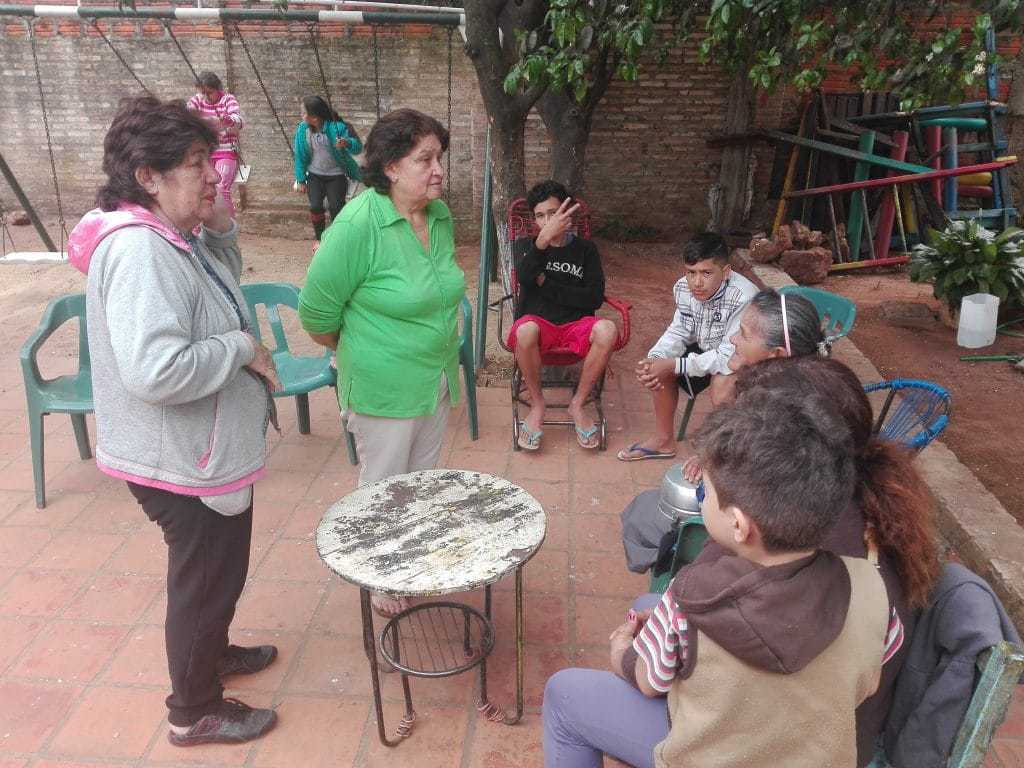
When Tia returned home from the procession late in the evening, she met two children on the street at the age of five and six. She asked them why weren’t they at home, and their short answer broke her heart:
“We’re hungry.”
“I understood that God just answered my question and decided to prepare meals daily for those children who don’t get lunch at home. At least one meal a day!”
Auntie for the hungry
And so she began. She invited the children to her place and cooked simple but nutritious meals for them as they returned hungry from school.
“I met a lot of them before and I knew they needed food. Those I didn’t know, I visited at their home and checked in what conditions they lived. In this
For example, one day a boy came to Tia and said he was hungry. She visited his family and was shocked at the circumstances in which they lived. There were as many as fifteen children. Their father left them and mom stayed alone with them. Some children were already old enough to help care for the young, but they didn’t have enough for three meals a day.
Dream of a dining room
“Families in Paraguay are numerous,” explained Tia. “Many have ten children and more. What is most worrying is that they are often dysfunctional and the social services in Paraguay are virtually non-operative. At least they don’t exist for these people.”
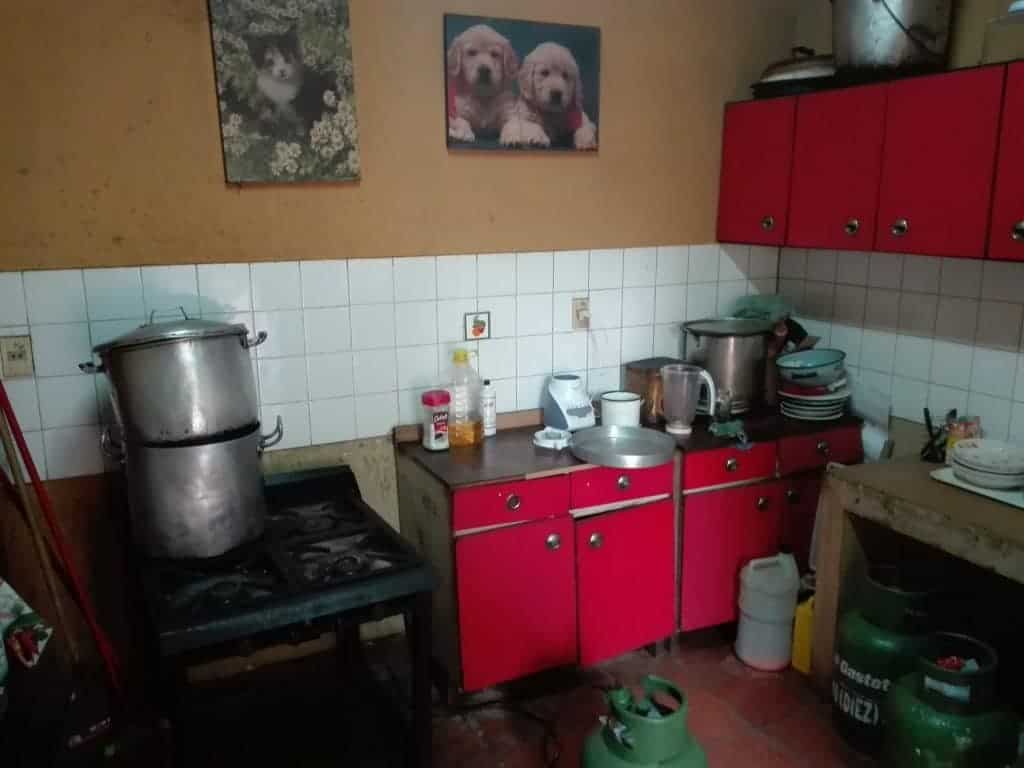
On the other hand, people in the neighborhood are very supportive. Those who could afford to brought Tia treats, bread, empanadas, rice and foods. Soon the number of hungry in her house increased so that she had to turn to God again.
“I had long dreamed of opening a kitchen and a dining room for these people. I asked the Lord to show me the way. And also this time, he did not fail,” said Tia.
God answers
This is what happens if you put God’s will to act. God speaks to us according to our wishes. He speaks to us through our longings that have been a part of us for such a long time and have become so strong that we simply need to do something about them.
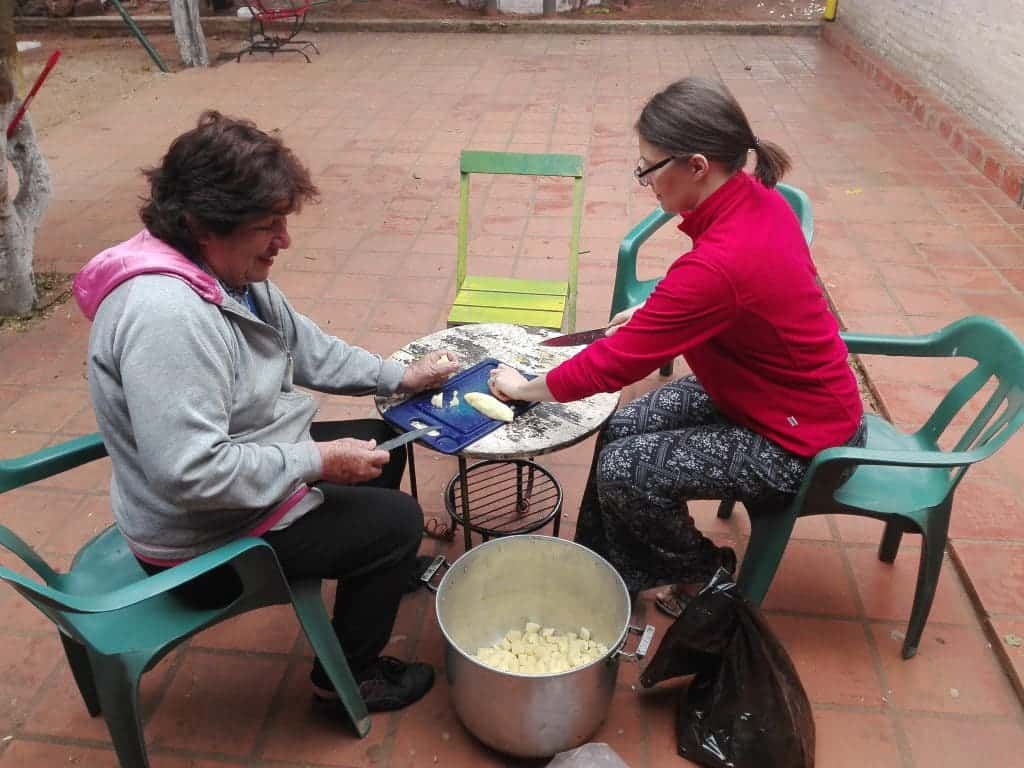
“I admit I have had doubts if such a project will succeed. The economic crisis, the purchase of the land, the construction of the kitchen and the dining room, and I simply didn’t have enough money to buy all that.”
El Jardin de Tia
At that time, her friend traveled to Spain and France. She knew Tia’s wishes and with the help of her European friends collected 30 million Guaranis, enough to make Tia’s dream come true right opposite her house.
In fact, these donors have taken a step further. They came to Paraguay, bought the land, and built the dining room and kitchen on their own.
The area is called ‘El Jardin de Tia’ (Tia’s garden). Every day there are more than 60 people coming to have lunch and afternoon snack. Not only the children but also their parents and the elderly and mentally disabled, in short all who are deprived of regular nutrition.
Brazilian priest and two Europeans
The garden is only a hundred meters away from the Augustinian community, where we are staying. So, we didn’t have a long way to go as we went to visit the auntie with fr. Jurandir one day.
Visibly tired, Tia was happy to meet us and explained her ‘Operando‘ to us with enthusiasm. She talked about God who has entered her life and given her the opportunity to serve the poor in her neighborhood.
We suggested that one day we could prepare lunch and afternoon snack. Of course she agreed.
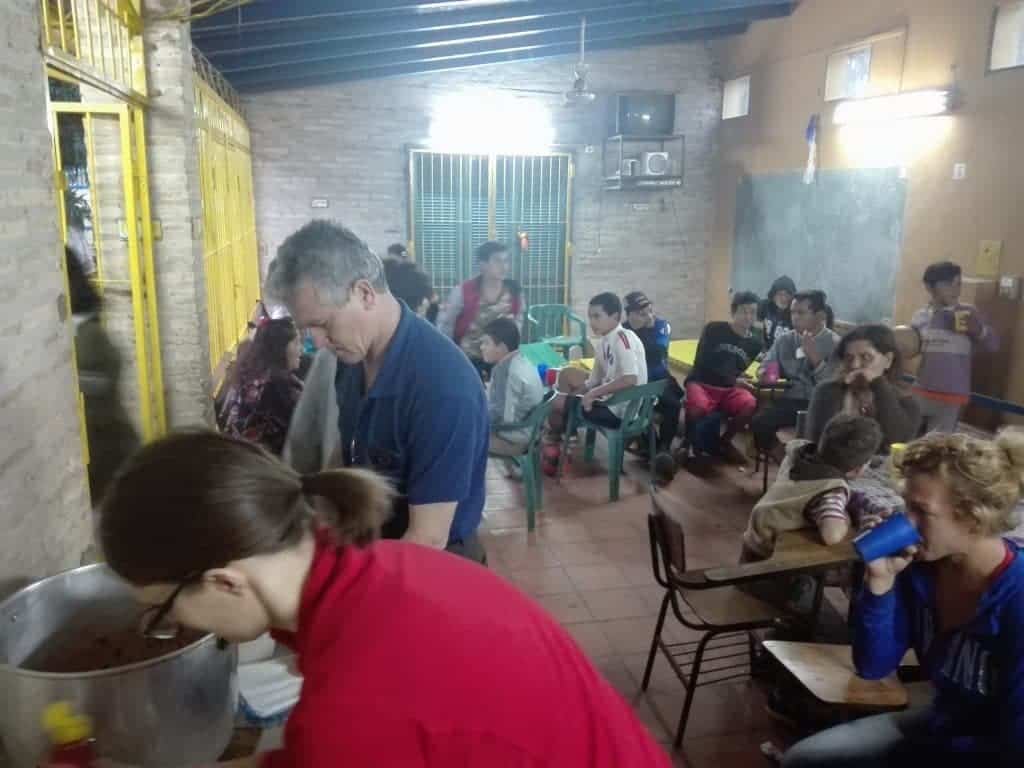
That Friday we went to the store, bought everything necessary to prepare pasta with meat sauce (for lunch) and hot-dogs for afternoon snack based on Jurandir’s Brazilian recipe.
The dining room was full. Children, their parents, the elderly, practically all who visit Auntie’s garden got together and waited for something different. After all, not often does it happen to have two Europeans and a Brazilian priest cook for them.
Nice experience and a good feeling!
Mission: Painting
El Jardin de Tia is spacious enough. Beside the modest kitchen and covered dining room, there is also a grassy yard with swings and other playground equipment for the youngest. But there are still a few things that are unfinished.

Silva and I offered to buy paint for painting inner part of the stone fence in the garden, which is still waiting for its ‘look’.
A project we would like to complete before we leave Paraguay. After we helped painting the catechetical classrooms in the mission, we were well-trained for such a job.
The calling
Tia’s story can be the story of each of us. I strongly believe that God calls us to the poor because he wants to meet us there. We are all called to the people who need help, but God invites each one in his own way.
If we contemplate and ask God what he wants from us and how he wants us to contribute to this world, where hunger, poverty, inequality, injustice and indifference are still prevalent, God will answer. And we will clearly hear His call.
